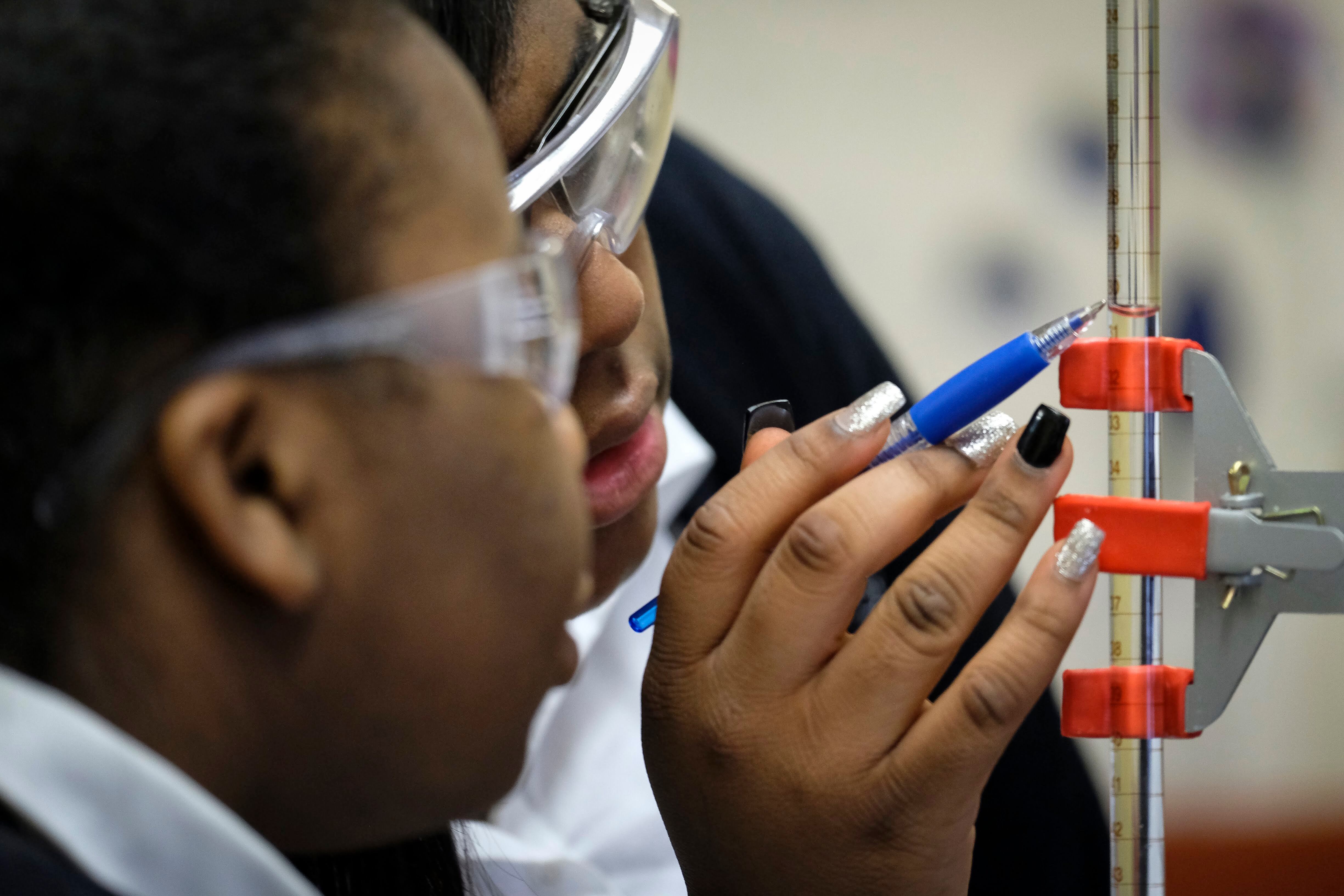Less than 7% of Newark students who took state science assessments in the spring passed the test — the first since the pandemic started, according to data presented by the Newark Board of Education during October’s board of education meeting.
The 2022 New Jersey Learning Assessment, or NJSLA, in science results come a month after Newark school officials gave a first look into low scores on state math and reading scores on the spring exam.
Newark also gave a glimpse into statewide scores that show only 16% of students passed the test statewide. The state’s Department of Education has not released the scores to the public although state officials said scores would be released in early fall.
Rochanda Jackson, executive director of the district’s Office of Policy, Planning, Evaluation, and Testing, presented the scores last Thursday and said that “on average across the state, for every 25 students that participated in science only four of them passed.”
As state test results are slowly released this year, scores are dropping across the nation in math and reading assessments. Last month’s release of the 2022 National Assessment of Educational Progress, or NAEP, showed the largest dips in math scores since 1990, when the exams were first given. In New Jersey, the NAEP drops were significant but students continued to score higher than the nation’s average.
On NJSLA reading and math scores, 13% of Newark students passed their math state assessments while about 27% passed their English language arts test, according to the district.
Newark Public Schools has not made its data available online.
“We know that the pandemic is what negatively impacted the trends that we were seeing,” said Superintendent Roger León about the science test results during last week’s meeting.
New Jersey students in grades five, eight, and 11 are required to take the NJSLA science assessment, which has four proficiency levels, unlike reading and math scores where there are five levels. If a student earns a level three or level four on the science test, it means they passed or are proficient or advanced proficient, respectively, according to the 2019 score interpretation guide. Overall scale scores in science range from 100 to 300, while NJSLA reading and math range from 650 to 850, the guide read.
Districtwide, 6.8% of students passed the spring 2022 science assessment, Jackson said. The difference between the state and district passing rate ranged between 13 and 18 percentage points depending on grade level, she added. According to the data presented, 11.1% of 11th graders passed the test, a slight improvement from the last time they took the assessments in spring 2019 when they scored 10.7%.
“We have certain grade levels that have continued to make gains from one administration cycle to the other,” Jackson added. “We saw that with our 11th grade students, despite COVID, they did make some progress.”
In spring 2019, fifth grade students had a 10.3% passing rate, but that dropped this year to 7.2%, Jackson said. Among eighth graders, the proficiency rate also dropped to 3.1% in comparison to the 4.4% rate in 2019.
“There hasn’t been a whole lot of movement among the eighth graders and you did see that across the state eighth graders struggled with the items that were on their assessment,” Jackson added.
Students did better in earth science-related topics and critiquing practices, Jackson added at the end of the presentation. Across district schools, Science Park gained more than 20 percentage points this year since the last time students took the test in spring 2019, Jackson said. At the elementary school level, Ann Street made the biggest progress, gaining more than 11.5 percentage points, Jackson added.
“We saw the same kind of performance in terms of change from one cycle to another among First Avenue students, Mount Vernon, Lafayette, Oliver, Avon, Avenue School, McKinley, Sussex as well,” Jackson noted. “They all outperformed the district’s average on the science assessment.”
Newark board officials did not provide a school breakdown of the results during their presentation.
Among student groups, Black students scored less in science than their Asian American, white, and Hispanic counterparts across all grade levels, according to the data provided by the district during the meeting.
Former English language learners also outperformed English language learners, and non-English language learners. Students with disabilities across all grade levels had the lowest passing rates; overall, less than 1% of those who took the test passed. They were followed by English language learners who had a passing rate of 1.7% across grade levels.
During the October board meeting, León attributed the dismal state results to the pandemic, mental health issues, and the length of time in which students were out of school. Even when Newark partially reopened classrooms in the spring of 2021, only about 40% of students showed up. And just 5,500 students, or about 15% of the total, participated in summer programs that year. León also said that despite some gains in scores this year, the results are part of a “greater problem of over 25 years of state operation.”
In 2020, New Jersey returned Newark schools to local control following a two-year transition period.
“When I started as the superintendent, we had schools that didn’t even have science labs,” León said. “And so how are you going to pass a science test? If you’ve never had a test tube in your hand? So it’s, one would argue equity, I would argue negligence.”
Jessie Gomez is a reporter for Chalkbeat Newark, covering public education in the city. Contact Jessie at jgomez@chalkbeat.org.






